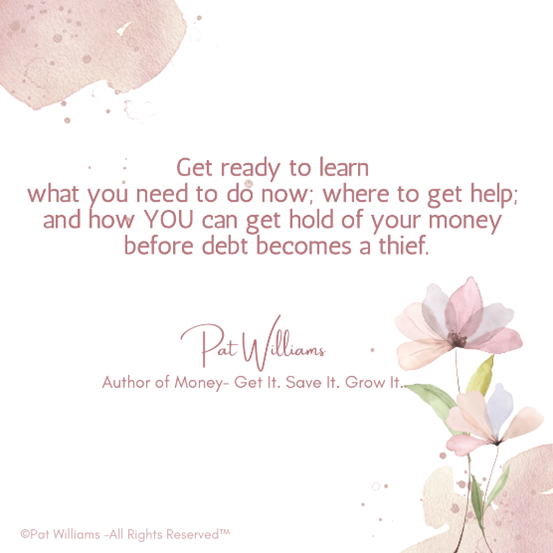Money is good for a variety of reasons. The first two are to spend and save. The third thing money is good for is giving it away. You may be thinking that you don’t have any extra money to give away. Often, giving away is not in the form of hard cash. Consider what you do have that a worthwhile group may need; your skills and time.
Just throwing money at a problem doesn’t always solve a problem. One way to solve a problem is by donating your skills and time.
Do you have a car? Over 90 percent of the population has at least one. How about volunteering to drive someone to their doctor’s appointments or physical therapy? When election times surface, there is the opportunity to drive some to the polls to vote in person, or even to a ballot drop box.
You will be surprised at how many groups and organizations need willing workers.
Over the years I have:
· Volunteered at hospitals
· Answered the telephone for my local public broadcasting station
· Picked up trash on Earth Day with Students from a local elementary school
Here’s a list of organizations that can always use volunteers:
Animal shelters
Assisted living facilities
Childcare centers
Food pantries
Hospice
Hospitals
Local parks and recreational areas
Religious organizations
Here’s some other suggestions.
In some areas people are volunteering read to children in day care centers and in assisted living communities. Some get into the characters of their books. One woman dresses up like Mother Goose and tells stories to children.
Habitat for Humanity needs people with carpentry skills or who like to paint.
Think of organizations like food pantries that need can goods and other non-perishables—plus they need onsite folks to fill bags and boxes for those who are in the drive-in lines.
Do you have a lot of books gathering dust on your shelves? Donate them to your local library, a school, woman’s shelter—especially in the self-help and how-to genres. Many local libraries have book sales once a year. Don’t forget to scout around in your own neighborhoods. Free Libraries have popped up on front yards—take a book … leave a book. Why not yours?
Watch for our next blog where I’ll illustrate how to judge whether or not an organization is meeting its goals. So important to understand how much of donated funds actually land in a recipient’s hands.
Patricia Lane Williams, CPA has worked with thousands of men and women sounding the warnings. She is the author of the Amazon bestseller, Money: Get It. Save It. Grow It … Before Debt Steals It. It’s her first book in the Four Corners Prosperity series. Her website is www.PatWilliamsAuthor.com.
















